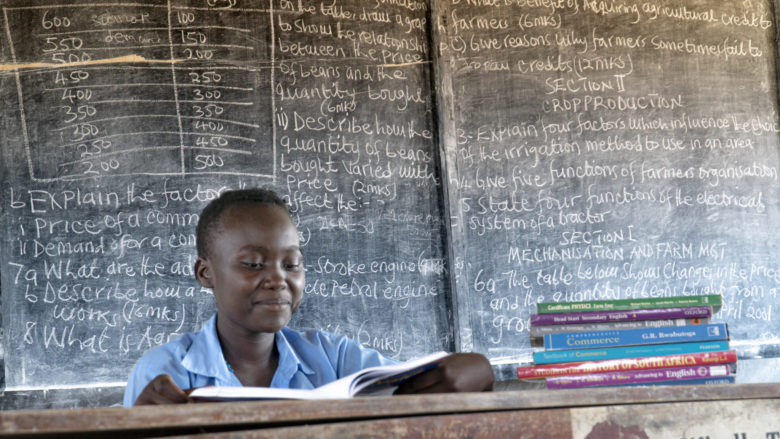Back to school? – When school doesn’t start after the restrictions

The global education crisis has deepened due to the Covid-19 pandemic. As many as 1.5 billion children have been out of school during the pandemic. Long-time school closures have caused a setback on education. 50 million children are at risk of dropping out of school permanently. UN Sustainable Development Goal 4 is to guarantee universal, equal, and high-quality education and lifelong learning opportunities for all by 2030. How do we reach our goal despite the challenges? Answers were sought together in the Fida, Church Aid, Save the Children, and Plan webinar, Back to School?
In the video part of the webinar, Fida’s CEO Harri Hakola said that the number of school dropouts has increased, the level of education has decreased, and the lives of girls have significantly worsened. Ossi Heinänen, Secretary General of Plan International, added that sexual harassment and pregnancies of girls have increased. Hanna Markkula-Kivisilta, Secretary General of Save the Children Finland, said that the opportunities for children in the future will weaken with the corona pandemic, which will affect the development of entire societies. Jouni Hemberg, Executive Director of Church Aid, emphasized the importance of vocational schools for digitalization in developing countries, where distance learning has been challenging to implement.
Priya Härkönen and Vilma Hoviniemi of Plan’s Children’s Board interviewed Ville Skinnari, the Minister for Development Cooperation and Foreign Trade in Finland.
If women had the same access to education as men, the world economy would be 25 percent higher.
The interview revealed that there is a desire to improve education globally through development cooperation. Education is the key to everything, such as the development and stability of society. It is important to remember that every child has the right to education. However, this is not always the case, as girls are easily excluded from education due to a lack of sexual and reproductive health knowledge. Ville Skinnari stressed that if women had the same access to education as men, the world economy would be 25 percent higher. This important issue must therefore be considered in improving education in developing countries.
Fida, along with other development organizations, presented ways to tackle the global education crisis. Distribution of learning materials, children’s club activities, high-quality teacher training, vocational training, improving menstrual health and child protection were highlighted as effective ways. In this way, children and young people are guaranteed a safe school journey both during and after the pandemic.
Minister of Education Li Andersson also commented on the global learning crisis. Anderson recalled that UNESCO estimates that girls are at risk of dropping out of education permanently and that vulnerable groups are even more vulnerable. As a result of the closure of educational institutions, violence, exploitation, and the number of child marriages experienced by children also increased. Finland must take these issues into account in its international co-operation, said the Minister of Education, and reminded that equality is a matter for all society.
The debate continued with a panel discussion of MPs. Inka Hopsu (Green), Pia Lohikoski (Left), Antero Laukkanen (KD), Jouni Ovaska (Kesk), Kristiina Salonen (SDP) and Saara-Sofia Sirén (Kok.). The panel was moderated by Annika Nieminen from the Teachers Without Borders network.
How will Finland benefit from the improvement of the education system in developing countries?
It is known that Finland has a socially known education system in which all pupils are on an equal footing. Access to school is independent of financial background or other factors. Teachers are highly educated, and school services are comprehensive for students and their parents: for example, in addition to studying, you can also receive support for mental and physical well-being.
In the panel discussion, the majority of the MPs took a stand on international responsibilities. Finland also has a responsibility for the well-being of people in developing countries. Through bilateral and multilateral co-operation and development co-operation, Finland would be able to improve children’s day care opportunities, the quality of education, train teachers, and guarantee good services in schools. In crisis situations, it is essential that development funding is not cut.
How will Finland benefit from the improvement of the education system in developing countries? We received several answers. Social policy relations improve, and a stable education system guarantees social peace as people’s learning develops and they get jobs. This increases global stability.
A stable education system guarantees social peace as people’s learning develops and they get jobs.
The worldwide corona pandemic has not abated, so the help of Fida and its partners is more needed. Fida strives to ensure that every child, regardless of gender, gets in to school. We want to ensure that everyone has the right to learn. We will continue working for a better hope and future.
Text: Isabel Dinan, trainee in Fida’s development team
